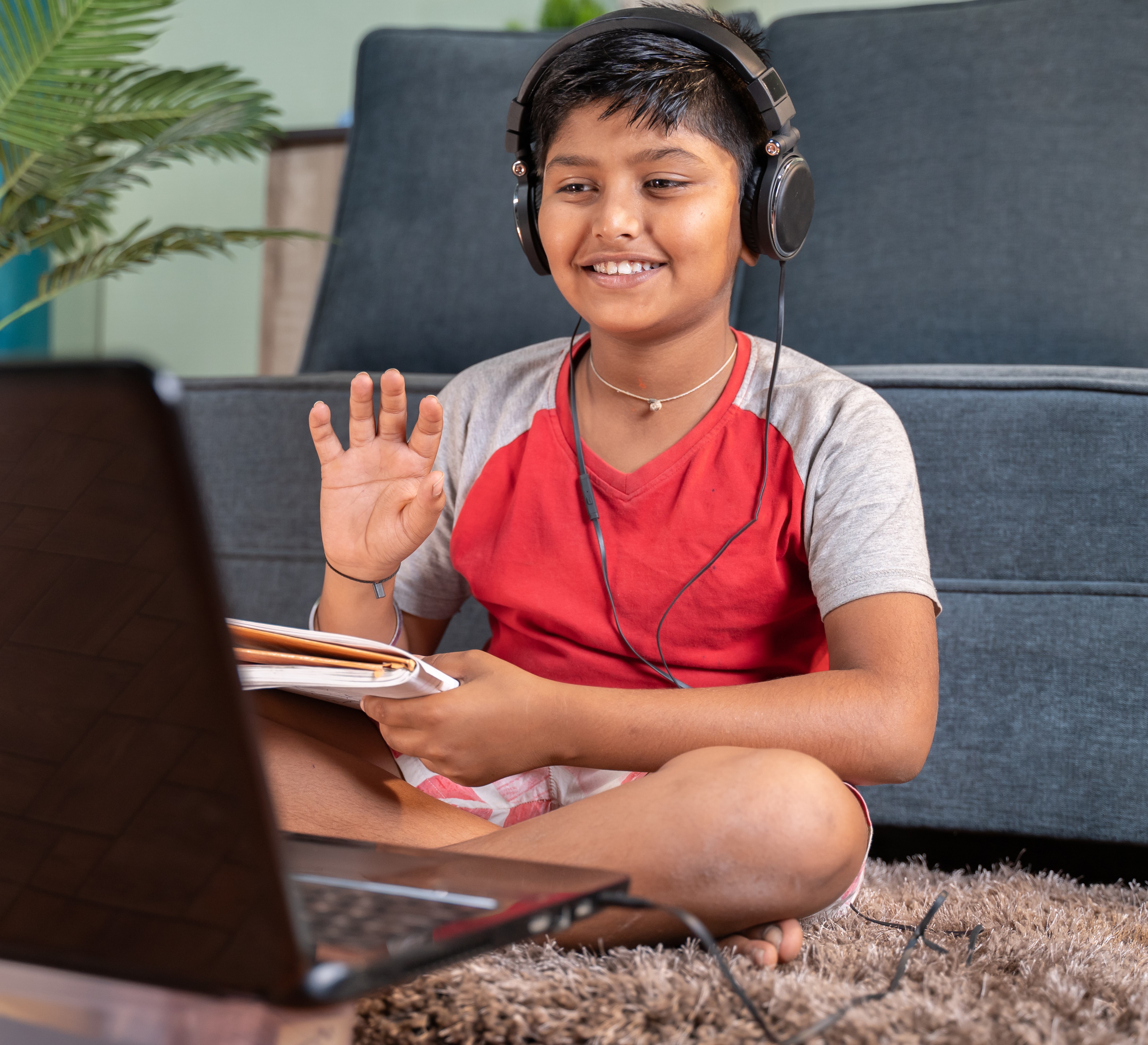 COVID-19 AND HERITAGE LANGUAGE LEARNING
COVID-19 AND HERITAGE LANGUAGE LEARNING
Asma Afreen and Bonny Norton | January 29, 2021
The Canadian census of 2016 highlights the multilingual character of our country, in which over 7 million people speak a mother tongue other than the official languages of English and French. While parents in such homes want their children to learn Canada’s official languages, to be successful at school and in the workplace, many are also eager for their children to maintain the parents’ mother tongue, or heritage language, not only as a linguistic resource, but also as a marker of identity. Several studies (e.g., Duff, 2008; Duff & Becker-Zayas, 2017) have reported that many ethnolinguistic communities have shown enthusiastic support for heritage language maintenance and have established heritage language programs in many provinces of Canada. Our research site, the Vancouver Bangla School, is one of them.
One intriguing development resulting from the pandemic lockdowns has been the increased interest in heritage language learning around the world. An article in The New York Times on September 10, 2020, has noted that as a result of lockdowns, children are spending more time with their parents, and for children in multilingual families, there has been greater opportunity to hear their parents speak the heritage language. The article notes that increased enthusiasm for heritage languages has been found in Germany, Britain, the United States, Norway, and Uganda.
Rather than studying language practices in the home, we are interested in the way community-based language schools are adapting to the pandemic. In the fall 2020, we began a case study to investigate how teachers from the community-based Vancouver Bangla School are transitioning from in-person to online teaching during COVID-19. Currently, the school has four volunteer teachers including co-author Asma Afreen. Our research sought to identify what challenges the teachers have experienced in the transition to online heritage language teaching during the pandemic and what resources they use to promote the active participation of learners.
The Vancouver Bangla community school was established by the Greater Vancouver Bangladesh Cultural Association in 2018, with free Bangla language classes offered on a weekly basis to Canadian Bengali children. Parents of the children who attend the Vancouver Bangla School are mostly Bangladeshi Canadian immigrants. While parents are native speakers of Bangla, English is the dominant language of their children. Following the interruption of in-person learning last March, teachers at the school reached out to the Greater Vancouver Bengali community via Facebook to share plans of moving online. Parents’ and children’s enthusiasm for heritage language learning during the pandemic was evident when twenty-one students (children aged 6-14) registered for the program. The school reopened virtually in June 2020, providing free online Bangla classes.
Since English is the dominant language for children at the Vancouver Bangla School, teachers and children use both Bangla and English flexibly to facilitate children’s Bangla learning. Teachers co-teach in the online session and collaborate to solve technical challenges. They support one another in creating resources – such as flashcards with Bangla letters and digital Storybooks – to make language learning interactive and engaging.
Our study identified two important findings associated with online heritage language learning and teaching during the pandemic. First, online teaching has enabled the school to reach the wider Bengali community, both locally and nationally, transforming itself from an urban centre to a virtual provincial and national site. Not only did the number of students increase when the school went online, but the participating students reside in different parts of BC, as well as in Ontario. Second, although parents acknowledge the benefits of face-to-face teaching, both teachers and parents highlight commuting time as a significant challenge in face-to-face teaching. Further, in-person instruction precludes the participation of students from other provinces - and, indeed, from other countries, where members of linguistic and cultural diasporas are unable to connect in-person to the Vancouver Bangla School.
Our study demonstrates that online learning may enhance the opportunities for historically underserved communities to connect and collectively strengthen heritage languages. The resilience of families may also be strengthened; we note, for example, the delight of parents in hearing their children sing the national anthem of Bangladesh.
The practices of the Vancouver Bangla School may be of interest to other communities that wish to support heritage language learning both during and after the pandemic. The Bangla community has harnessed online teaching and digital innovations to encourage children to embrace bilingual and multilingual identities, thus enriching communication in families and communities. The school has been able to accomplish this with dedicated volunteer teachers, free digital educational resources, and a committed parent community. Such learning bodes well for a post-pandemic world in which multilingual communities can strengthen heritage languages and identities.
References
Duff, P. (2008). Heritage language education in Canada. In D. Brinton, O. Kagan, & S.
Bauckus (Eds.), Heritage language education: A new field emerging (pp. 71–90). New York, NY: Routledge/Taylor & Francis.
Duff, P., & Becker-Zayas, A. (2017). Demographics and heritage languages in Canada: Policies,
patterns, and prospects. In O. Kagan, M. Carreira, & C. Chik (Eds.), Routledge handbook on heritage language education (pp. 57-67). New York, NY: Routledge.
Hardach, S. (2020, September 10). In quarantine, kids pick up parents’ mother tongues. The New York Times. article here Statistics Canada. (2017). Census in brief: Linguistics diversity and multilingualism in Canadian homes. Statistics Canada Catalogue no. 98-200-X. Ottawa. Ontario. View here



